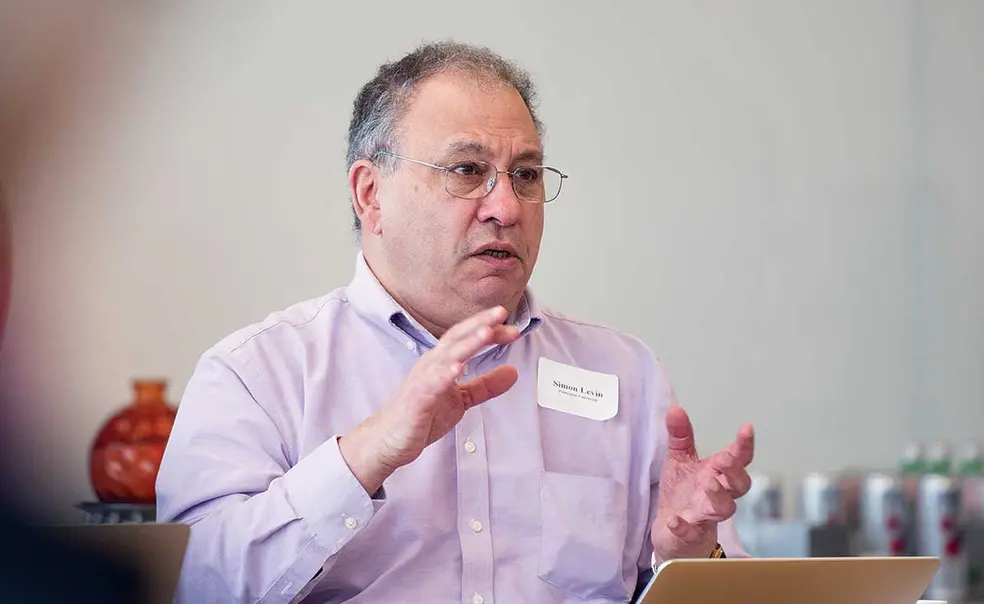New Princeton Partnership Seeks Resilient Systems
Researchers will seek to understand the qualities of complex systems that produce resilience.
Climate change and other multifaceted global threats have motivated a new Princeton partnership with research institutions in Sweden and Germany, called the Earth Resilience and Sustainability Initiative. Researchers will seek to understand the qualities of complex systems that produce resilience.
Simon Levin, the James S. McDonnell Distinguished University Professor in Ecology and Evolutionary Biology, brought the initiative together in August 2019, drawing on earlier collaborations with the Potsdam Institute for Climate Impact Research and the Stockholm Resilience Centre at Stockholm University.
“A lot of us are interested in taking a step back and developing general theoretical approaches to issues of resilience,” Levin says. He explains that the initiative chooses topics not only because of their importance, but also to search for patterns that are significant in the design of resilient systems in general.
The team spans half a dozen fields from ecology to psychology, including Princeton’s High Meadows Environmental Institute and the Andlinger Center for Energy and the Environment. Among the three partners about 40 researchers are involved, with Princeton contributing approximately $1.5 million and the other institutions adding in-kind contributions of roughly $1 million each.
Ricarda Winkelmann, professor of climate system analysis at Potsdam, is looking at how tipping points in nature and social systems can cascade like dominoes to create rapid change. For example, human carbon emissions can drive snow and ice melt that in turn affects weather and agriculture. Understanding the linkages could help identify critical thresholds.
In addition to that sweeping scale, the initiative considers the local level, including the New Jersey milk market, says Dan Rubenstein, professor of zoology, who leads the initiative’s Global Food and Agriculture Sustainability Project.
During the early pandemic, Rubenstein found that large producers accustomed to delivering milk to schools and restaurants could not switch rapidly to deliver to stores. But a positive system response developed as local farmers connected to one another and directly to consumers.
Rubenstein saw a pattern of resilience in those small, diverse linkages — a lesson that could be applied to other systems.
“How do you rewire networks to make them absorb shocks?” Rubenstein asks. “Now you have the aha moment.”












No responses yet